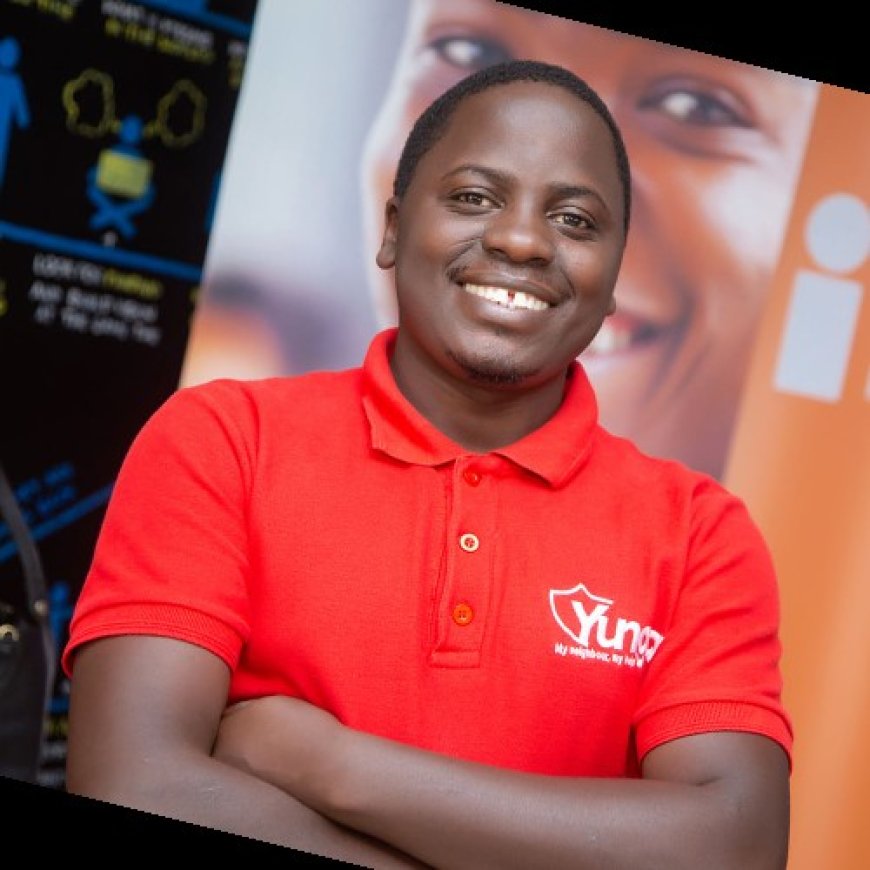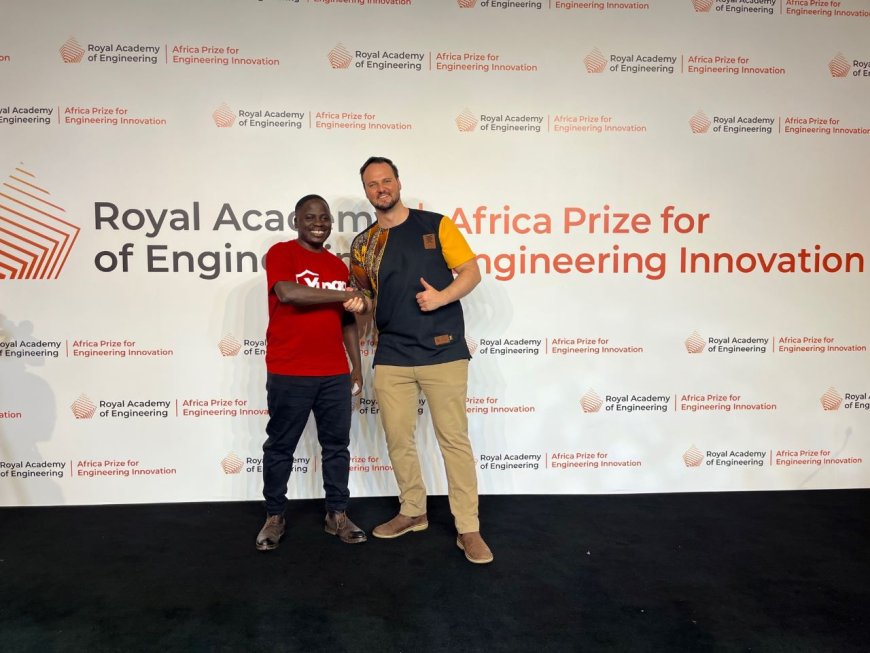Ugandan software engineer wins award amidst many challenges in the sector in the country
ACCRA, GHANA - Ugandan software engineer Anatoli Kirigwajjo has been recognized as the overall winner of the prestigious Africa Prize for Engineering Innovation, presented by the Royal Academy of Engineering. Kirigwajjo's groundbreaking innovation, Yunga, is a local digital security network that connects neighbors and local authorities within a 20km radius through a physical device, smartphone app, or SMS service, providing cost-effective security solutions.
The award ceremony took place in Accra, Ghana, where Kirigwajjo's achievement was celebrated. He expressed his excitement and gratitude for winning the continental prize, acknowledging the recognition and support as a driving force for his ongoing innovation efforts.
Yunga's unique approach to digital security has garnered significant attention and accolades. By empowering communities to connect and share vital information with local authorities, the platform enables proactive and effective security measures. Kirigwajjo emphasized his commitment to delivering exceptional technology tools to foster economic growth and safety within communities.
The recognition from the Royal Academy of Engineering has proven beneficial to Kirigwajjo's venture. He expressed his appreciation for the tailored workshops and mentorship provided by the academy, which have contributed to a remarkable 60% increase in sales and improved investment readiness. Yunga has already been adopted by over 1,000 households across 34 communities in Uganda, demonstrating its practicality and effectiveness.
With the prize, Kirigwajjo plans to expand the Yunga Network further, aiming to connect an additional 3,000 households. His focus will be on vulnerable women-led households, where the technology can make a significant impact in creating a safer environment and empowering these communities.
The continent-wide recognition validates Kirigwajjo's efforts and motivates him to continue developing cutting-edge solutions for underserved communities. His dedication to providing exceptional technology tools for safety and economic growth has now been acknowledged on a continental scale, inspiring him to push the boundaries of innovation even further.
Sharing the spotlight with Kirigwajjo is South African biomedical engineer Edmund Wessels, recognized for his outstanding FlexiGyn project. The handheld device designed by Wessels is intended for diagnosing and treating uterine problems at a low cost, showcasing the power of engineering to address critical health challenges in Africa.
The Africa Prize for Engineering Innovation is a prestigious award that highlights and celebrates engineering innovations with significant social and economic impact. Anatoli Kirigwajjo's success with Yunga exemplifies the potential of local talent and ingenuity to drive positive change within African communities. His dedication to improving safety and empowering vulnerable households through technology serves as an inspiration to aspiring engineers and innovators across the continent. With the support of organizations like the Royal Academy of Engineering, African engineers are making remarkable strides in solving real-world challenges and contributing to Africa's development and progress.
Requirements Engineering Process Improvement is a crucial aspect of software development that offers numerous benefits, yet many Ugandan software developing companies face challenges in conducting it effectively. These challenges can hinder the overall success and efficiency of software projects. Some of the prominent challenges faced by software engineers in Uganda include:
1. Rapid Advancement of Technology: The fast-paced nature of technological advancements poses a challenge for software engineers to keep up with the latest tools, methodologies, and best practices. Staying updated becomes essential to ensure the adoption of efficient and effective requirements engineering practices.
2. Increasing Customer Demands: As customer expectations grow, software engineers are faced with the challenge of meeting these demands during the development stage. Understanding and aligning with customer requirements while ensuring high-quality deliverables becomes a complex task.
3. Time Limitation: Software development projects often have tight schedules, leaving little time for thorough requirements engineering. Time constraints may lead to rushed or inadequate requirement gathering and analysis, impacting the overall project success.
4. Limited Infrastructure/Resources: Some Ugandan software companies may face resource limitations, such as a shortage of skilled personnel, proper tools, or infrastructure, hindering the effective implementation of requirements engineering practices.
5. Understanding Large and Complex System Requirements: Dealing with intricate and extensive system requirements can be challenging. Properly comprehending, documenting, and managing complex requirements requires expertise and structured approaches.
6. Undefined System Boundaries: Unclear boundaries of the software system can lead to scope creep, where additional requirements are added during the development process, resulting in project delays and cost overruns.
7. Lack of Clarity in Customer Needs: Customers may not always have a clear understanding of their requirements, leading to ambiguity and confusion during the development process. This lack of clarity can result in misalignment between the delivered product and customer expectations.
Addressing these challenges requires a proactive approach to improve the requirements engineering process. Implementing training programs to update software engineers on the latest technologies and methodologies can enhance their skills and knowledge. Effective communication channels with customers can help in understanding and managing customer demands better.
Moreover, investing in infrastructure and resources can contribute to more efficient requirement gathering and analysis. Implementing structured requirement engineering methodologies, such as Agile or iterative approaches, can help manage complex requirements and provide more flexibility in adapting to evolving customer needs.
By recognizing and addressing these challenges, Ugandan software developing companies can elevate their requirements engineering practices, leading to more successful and customer-centric software projects.



































































































